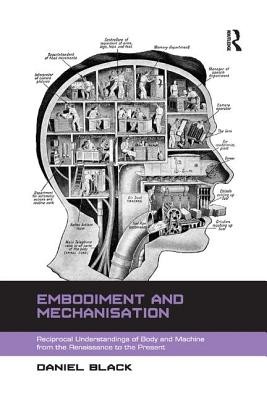
- We will send in 10–14 business days.
- Author: Daniel Black
- Publisher: Routledge
- ISBN-10: 1138267244
- ISBN-13: 9781138267244
- Format: 15.6 x 23.4 x 1.2 cm, minkšti viršeliai
- Language: English
- SAVE -10% with code: EXTRA
Reviews
Description
Drawing on philosophical, neurological and cultural answers to the question of what constitutes a body, this book explores the interaction between mechanistic beliefs about human bodies and the successive technologies that have established and illustrated these beliefs. At the same time, it draws upon newer perspectives on technology and embodied human thought in order to highlight the limitations and inadequacies of such beliefs and suggest alternative perspectives. In so doing, it provides a position from which widely held assumptions about our relationship with technology can be understood and questioned, by both showing how these presuppositions have emerged and developed, and examining the extent to which they are dependent upon our grasp of specific technologies. Illustrated with examples from the Renaissance and Enlightenment periods, as well as the industrial age and the recent eras of informatics, gene science and nanotechnology, Embodiment and Mechanisation highlights the ways in which technological changes have led to shifts in the definition of machine and body, investigating their shared underlying belief that all matter can be reduced to a common substance. From clockwork and cadavers to engines and energy, this volume reveals our long-standing fascination with and enduring commitment to the idea that bodies are machines and that machines are in some sense bodies. As such, it will appeal to scholars across the humanities and social sciences with interests in the sociology of science and technology, embodiment, cultural studies and the history of ideas.
EXTRA 10 % discount with code: EXTRA
The promotion ends in 22d.12:29:18
The discount code is valid when purchasing from 10 €. Discounts do not stack.
- Author: Daniel Black
- Publisher: Routledge
- ISBN-10: 1138267244
- ISBN-13: 9781138267244
- Format: 15.6 x 23.4 x 1.2 cm, minkšti viršeliai
- Language: English English
Drawing on philosophical, neurological and cultural answers to the question of what constitutes a body, this book explores the interaction between mechanistic beliefs about human bodies and the successive technologies that have established and illustrated these beliefs. At the same time, it draws upon newer perspectives on technology and embodied human thought in order to highlight the limitations and inadequacies of such beliefs and suggest alternative perspectives. In so doing, it provides a position from which widely held assumptions about our relationship with technology can be understood and questioned, by both showing how these presuppositions have emerged and developed, and examining the extent to which they are dependent upon our grasp of specific technologies. Illustrated with examples from the Renaissance and Enlightenment periods, as well as the industrial age and the recent eras of informatics, gene science and nanotechnology, Embodiment and Mechanisation highlights the ways in which technological changes have led to shifts in the definition of machine and body, investigating their shared underlying belief that all matter can be reduced to a common substance. From clockwork and cadavers to engines and energy, this volume reveals our long-standing fascination with and enduring commitment to the idea that bodies are machines and that machines are in some sense bodies. As such, it will appeal to scholars across the humanities and social sciences with interests in the sociology of science and technology, embodiment, cultural studies and the history of ideas.


Reviews